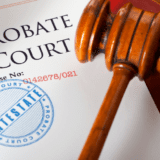How Do I Form a Business Entity? It’s one of the first—and most important—questions new entrepreneurs ask when launching a company in Pennsylvania. Whether you’re starting up in Greensburg, PA, or expanding your vision into Pittsburgh, PA, understanding the legal and structural steps to form a business entity is key to setting your business up for success.
If you’ve been asking yourself, “How do I form a business entity?”, you’re in good company. From choosing the right structure to registering with the Pennsylvania Department of State, the process can feel overwhelming without the right guidance. Here’s what local entrepreneurs in Greensburg and Pittsburgh need to know to navigate the process with confidence from seasoned business attorneys.

Understanding Business Entities
Before we delve into the specifics of how to form a business entity, it’s crucial to understand what a business entity is and why it matters. A business entity is a legal structure that determines how your business is organized, how it’s taxed, and what level of personal liability protection you have as an owner. Choosing the right structure at the outset can help you avoid costly mistakes down the road and lay a solid legal foundation for growth.
There are several types of business structures to choose from, each with distinct legal and operational implications. While the best choice will depend on your specific circumstances, here’s a general overview of the most common entity types:
- Sole Proprietorship
This is the simplest form of business structure and is often used by solo entrepreneurs or freelancers. From a legal standpoint, there is no distinction between the owner and the business, which means you are personally liable for all debts and obligations. While easy to set up, a sole proprietorship offers no personal liability protection. - Partnership
Partnerships involve two or more individuals who agree to share ownership and responsibilities. Legally, partnerships can expose each partner to personal liability for business debts and for the actions of other partners. It’s highly recommended to have a detailed partnership agreement in place, and legal counsel can help draft one that protects your interests. - Limited Liability Company (LLC)
An LLC offers a balance between liability protection and tax flexibility. It legally separates your personal assets from your business debts and obligations, which is a key advantage for small business owners. From a legal perspective, LLCs are often favored for their simplicity and protection, but the exact benefits can vary depending on your tax situation and long-term plans. - Corporation (S-Corp or C-Corp)
Corporations are more complex entities that offer strong liability protection and may be better suited for businesses seeking outside investment or significant growth. An S-Corp allows profits and losses to pass through to your personal tax return, while a C-Corp is taxed separately from its owners. Legal requirements for corporations are more rigorous, including annual meetings and detailed recordkeeping, which is why legal guidance is essential when considering this route.
Your choice of entity should reflect your business goals, operational needs, and risk tolerance. A structure that works for one business may not be right for another. That’s why it’s wise to speak with a qualified attorney or business advisor before making a decision. A lawyer can help assess your situation, explain state-specific requirements—such as those in Greensburg or Pittsburgh, PA—and ensure your business is structured for long-term success.
Steps to Form a Business Entity in Pennsylvania
Now that we’ve outlined the importance of business entities, let’s walk through the key steps involved in forming a business entity in Pennsylvania, whether you’re based in Greensburg, Pittsburgh, or anywhere in the state.
1. Choose Your Business Structure
Your first—and perhaps most important—step is selecting the business structure that aligns with your goals. This decision will affect everything from your tax obligations to your personal liability and ability to raise capital. Common options include sole proprietorships, partnerships, LLCs, and corporations.
Because each structure carries different legal implications, it’s wise to consult with a business attorney or accountant. They can help you evaluate your short- and long-term plans and choose the entity that best supports your business’s success.
2. Select a Business Name
Next, you’ll need to choose a unique name for your business. In Pennsylvania, your name must not conflict with any existing registered entities. You can search for name availability through the Pennsylvania Department of State’s website.
A legally distinct name not only protects you from potential disputes but also plays a vital role in shaping your brand identity.
3. Register Your Business with the State
Once your structure and name are set, you’ll file the appropriate formation documents with the Pennsylvania Department of State. These vary depending on your entity type:
- Corporation – File Articles of Incorporation
- LLC – File a Certificate of Organization
- Limited Partnership – File a Certificate of Limited Partnership
Accurate filing is essential to ensure your business is officially recognized by the state.
4. Obtain an EIN
Most businesses will need an Employer Identification Number (EIN) from the IRS. This is your federal tax ID, and it’s typically required to open a business bank account, hire employees, and file taxes. You can obtain one for free through the IRS website.
Even if you’re a sole proprietor, an EIN can help you separate business and personal finances more effectively.
5. Create Governing Documents
Depending on your structure, you’ll need internal documents to govern how your business operates. For example:
- Corporations should draft bylaws
- LLCs typically need an operating agreement
The state doesn’t always require these documents, but they are vital for clarifying roles, responsibilities, and how major decisions will be made—especially if you have business partners.
6. Obtain Necessary Licenses and Permits
Depending on your industry and location, you may need specific licenses or permits to operate legally. These could come from local, state, or federal authorities. Always check with your local municipality and the Pennsylvania Department of State to ensure full compliance.
Taking this step early can prevent regulatory headaches and help you maintain a professional, legally sound operation.
Specific Requirements for Pennsylvania
When exploring how to form a business entity in Pennsylvania, it’s essential to consider the state-specific legal and regulatory requirements that may apply to your operation. These go beyond federal obligations and can vary based on your industry, location, and business structure.
1. State Tax Registration
Most businesses operating in Pennsylvania must register with the Pennsylvania Department of Revenue. This is especially important if your business will:
- Sell taxable goods or services
- Withhold Pennsylvania income tax from employees
- Operate in industries subject to special taxes (such as tobacco, fuel, or alcohol)
You can register for a Pennsylvania Tax Account ID using the PA-100 Enterprise Registration Form, which allows you to apply for various state tax accounts in one place.
2. Employer Requirements
If you plan to hire employees, there are several employer-specific requirements:
- Register with the Pennsylvania Department of Labor & Industry for unemployment compensation insurance
- Register with the Pennsylvania Department of Revenue to withhold and remit state income taxes from employee wages
- Comply with workers’ compensation insurance requirements, which apply to nearly all employers
Failing to register for these programs can result in penalties or delays in legally hiring staff.
3. Professional Licensing & Industry Regulations
Certain professions and business types in Pennsylvania require licensing or approval from state boards or regulatory bodies. This includes (but isn’t limited to):
- Legal, medical, or financial professionals
- Contractors and tradespeople
- Real estate agents
- Cosmetologists and barbers
- Childcare providers
Licensing requirements can vary by profession, so it’s important to consult the appropriate Pennsylvania licensing board to ensure you’re in full compliance before offering services.
4. Fictitious Name Registration (if applicable)
If you’re operating under a business name that differs from your personal name (for sole proprietors) or from your legal entity name (for LLCs or corporations), Pennsylvania requires you to file a Fictitious Name Registration. This is sometimes referred to as a “doing business as” (DBA) name.
The registration must be filed with the Pennsylvania Department of State, and it does not provide exclusive naming rights, but it is legally required for transparency and accountability.
5. Local Zoning and Permit Compliance
Your city or municipality—whether you’re located in Greensburg, Pittsburgh, or elsewhere in the state—may have zoning laws, business licenses, or local permitting requirements that apply to your business. These rules may regulate where you can operate, signage, parking, and even hours of operation.
Contact your local city or county government to verify any additional requirements before you open your doors.
Understanding and fulfilling these Pennsylvania-specific requirements is a key part of staying compliant and protecting your business. While many steps can be completed online, the legal and financial implications are significant—especially if you’re in a regulated profession or hiring employees. When in doubt, it’s best to consult a business attorney or accountant familiar with Pennsylvania law to help you navigate the process with confidence.
The Importance of Professional Assistance
Forming a business entity is a critical step—but it’s not one you have to take alone. While some entrepreneurs choose the DIY route, many discover that working with experienced professionals can make the process smoother, more efficient, and legally sound.
At Bumbaugh | George | Prather | DeDiana, our attorneys provide strategic guidance tailored to your specific goals and circumstances. Whether you’re launching a business in Greensburg or operating elsewhere in Pennsylvania, we can help you:
- Select the most appropriate legal structure for your business
- Prepare and file formation documents with the state
- Draft essential governing documents such as operating agreements or bylaws
- Ensure compliance with state and local licensing, tax, and regulatory requirements
We understand that every business is different, and our team is here to help you avoid costly missteps, protect your interests, and set the foundation for long-term success. Our deep knowledge of Pennsylvania business law allows us to provide proactive, personalized support at every stage of the process.
If you’re asking yourself, “How do I form a business entity?”—we’re here to provide answers, clarity, and trusted legal support.
Staying Compliant in Pennsylvania
Forming your business entity is just the first step. To keep your Pennsylvania business in good standing, you must stay compliant with a number of ongoing state and federal requirements. These obligations help maintain your legal protections and avoid costly penalties.
Key compliance requirements in Pennsylvania include:
- Filing required reports with the Pennsylvania Department of State (e.g., Decennial Reports for certain entities)
- Paying applicable state and federal taxes on time
- Maintaining accurate internal records such as meeting minutes, operating agreements, and financial documents
- Renewing business licenses or permits as required by your industry and municipality
Failure to meet these responsibilities can lead to late fees, administrative dissolution, or the loss of your liability protections. Staying organized and proactive is essential to keeping your business legally compliant and operating smoothly.
Here’s a quick overview of key tasks to track:
| Task | Frequency | Importance |
|---|---|---|
| State Compliance Filings (e.g., Decennial Reports) | Every 10 Years (depending on Business Structure) | High |
| Paying Taxes (Federal income tax and State) | Quarterly/Annually | High |
| Maintaining Records | Ongoing | Medium |
| Renewing Licenses/Permits | Varies | Medium |
For Pennsylvania businesses, requirements can vary based on your location, industry, and entity type. That’s why it’s helpful to work with a local attorney or accountant to ensure you’re meeting all obligations specific to your situation.
Final Thoughts: Start Your Pennsylvania Business with Confidence
Forming a business entity in Pennsylvania involves much more than choosing a name and filing paperwork—it’s about building a strong legal and operational foundation that protects your interests and supports your growth. From selecting the right entity type to staying compliant with ongoing state and local requirements, every decision you make plays a role in your long-term success.
If you’ve been asking, “How do I form a business entity in Pennsylvania?”, you’re already on the right path. But navigating the legal complexities on your own can be time-consuming and risky, especially with Pennsylvania’s unique regulations and filing requirements.
At Bumbaugh | George | Prather | DeDiana, we’re here to help. Whether you’re just getting started in Greensburg, Westmoreland, Irwin, or need trusted legal guidance anywhere in the Commonwealth, our experienced business attorneys can provide the personalized support you need to move forward with clarity and confidence.
Let’s build something strong—together.
Frequently Asked Questions How Do I Form A Business Entity
How do I create my own entity?
To create a business entity, begin by selecting the structure that best fits your goals—such as a sole proprietorship, partnership, LLC, or corporation. Next, choose a unique business name and file the appropriate formation documents with the Pennsylvania Department of State. You’ll also need to obtain an Employer Identification Number (EIN) from the IRS, draft any necessary governing documents (like an operating agreement or bylaws), and secure any required state or local licenses or permits.
Working with a business attorney or accountant can help ensure your entity is properly formed and compliant from day one.
Is an entity the same as LLC?
Not exactly. A business entity is a general term that refers to any legally recognized business structure—such as a sole proprietorship, partnership, corporation, or Limited Liability Company (LLC). An LLC is one specific type of entity that combines liability protection with operational flexibility.
While a sole proprietorship may be simpler to start, an LLC offers stronger legal protection for your personal assets.
How to establish a new entity?
To establish a new business entity in Pennsylvania, follow these steps:
- Choose a business structure (LLC, corporation, etc.)
- Check name availability and register your business with the PA Department of State
- Obtain your EIN from the IRS
- Draft internal governing documents (e.g., operating agreement or bylaws)
- Apply for relevant state or local licenses and tax accounts (such as through the PA-100 form)
Because requirements can vary by industry and municipality, it’s wise to consult a professional familiar with Pennsylvania business law.
What is the easiest business entity to start?
A sole proprietorship is typically the easiest business entity to form. It doesn’t require state registration and has minimal setup costs. However, it does not offer liability protection — meaning your personal assets could be at risk.
For those seeking a balance between simplicity and protection, an LLC is often a preferred choice. It requires more steps to establish, but provides limited liability and greater credibility.








